Photos Courtesy of the Lake Nona Impact Forum
In late February, over 300 health and wellness leaders, plus former President Bill Clinton, gathered in our neighborhood for three days for the 2022 Lake Nona Impact Forum. For those new to Lake Nona, the Impact Forum, now in its 10th year, attracts the finest minds in healthcare for an invitation-only annual conference featuring panels on the latest issues and trends connected to the wellness industry. This year, lessons learned – or ignored – during the pandemic dominated the discussions. Other themes that emerged at this year’s event included the pervasive decline of public trust in experts, strategies to mitigate inequities in healthcare access, advances in technology to improve wellness, and recent trends in the science of aging.
Among those speaking at the forum were former CDC Director Robert Redfield, former Seattle Seahawks quarterback Russell Wilson and his Grammy-award-winning wife, Ciara, retired general Gustave Perna (the man in charge of Operation Warp Speed vaccine logistics), opera singer Renee Fleming, and actress Goldie Hawn.
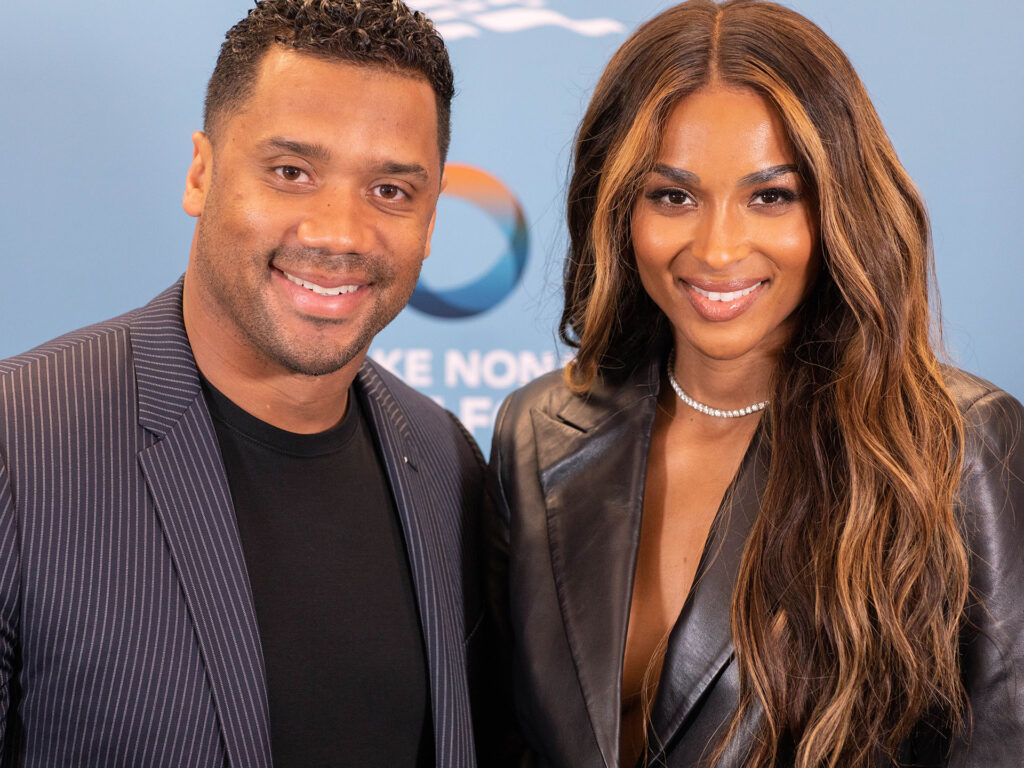
President Clinton’s remarks came on the second day of the forum, Feb. 24, the very day that Russia launched its invasion of Ukraine, so that war was uppermost in people’s minds that afternoon. Sanjay Gupta had earlier set the tone for forum discussions in a panel where he fretted about our nation’s subpar performance in containing the pandemic and our indifferent approach to learning from our errors. In the pandemic’s early days, two features of COVID – the emergence of human-to-human transmission together with asymptomatic infected patients – convinced public policy makers that this was a novel virus, a new disease without precedent, from which no one was safe. We have survived COVID so far, but will there be more variants? “This is the Age of Pandemics,” announced Gupta as he underlined the need to understand the lessons learned and consequences of our mistakes during this pandemic if we are to better plan for and manage future such crises. As one example, in our planning for the next pandemic, we must recognize off the bat that up to a quarter of the U.S. population will refuse to take a vaccine.
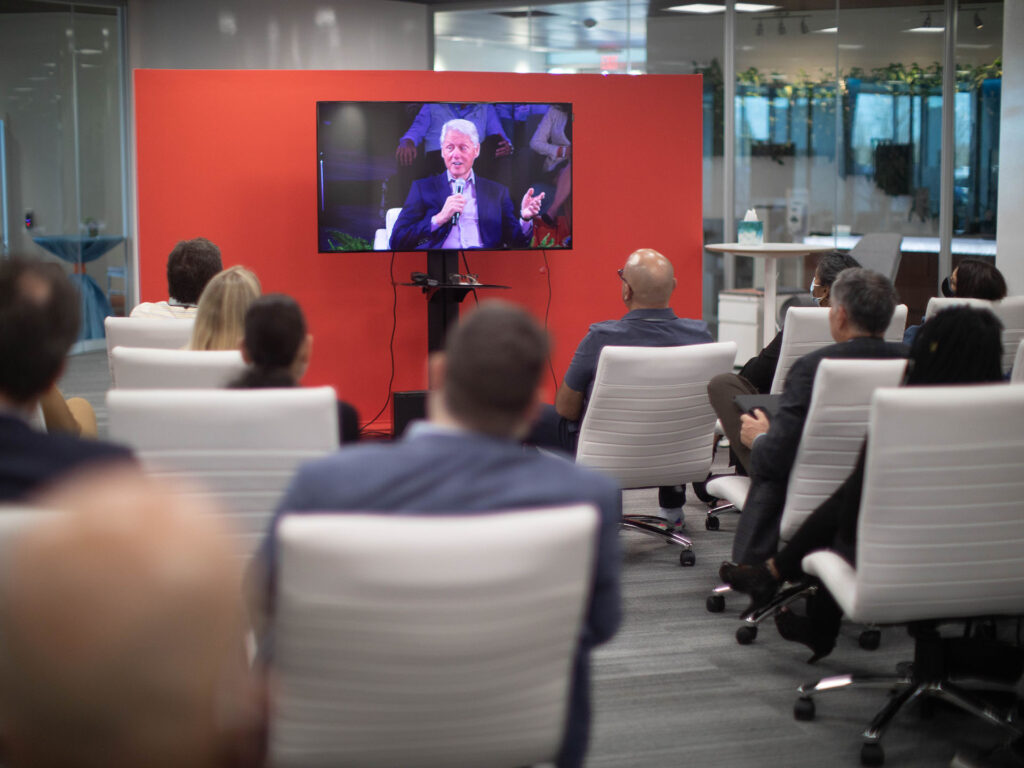
Patrice Harris, former president of the American Medical Association, picked up the theme of pandemic lessons and our growing trust deficit in an interview with former CDC Director Robert Redfield. Until his retirement early last year, Redfield labored at the center of the White House’s Coronavirus Task Force where, he stressed, “the CDC had a loud voice.” In the early weeks following COVID’s arrival in the United States, the CDC “didn’t know much,” so it was important to communicate honest information to the public. “Scientists,” said Redfield, “need to tell the truth” and learn how to say “I don’t know.” During a pandemic, by the time scientists find the “perfect” solution, it’s usually too late to put that solution to use. To regain the public’s trust, Redfield suggested that scientists start by exercising a measure of humility.
Several forum panels addressed the issue of inequities in the provision of quality healthcare, particularly for minority populations. Judging from the number of minority speakers who took the stage, forum organizers, it seemed, wanted to shine a spotlight on health inequalities, a gaping flaw in our national health network that was so bluntly exposed by the pandemic.
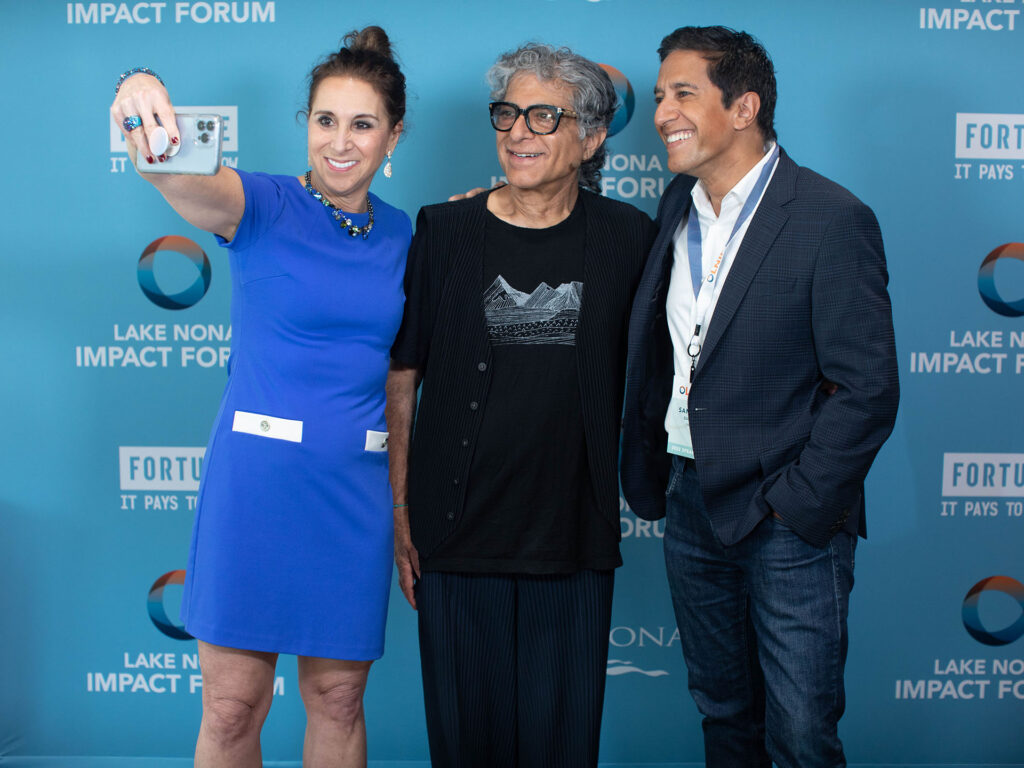
In one eye-opening panel, two ministers, Rev. Bobby Baker and Rev. Terris King, spoke of their successes in Memphis and Baltimore in connecting African-American churches to local hospitals and healthcare organizations. Residents of poor inner-city neighborhoods suffer inordinately from treatable chronic diseases – diabetes, obesity, congestive heart failure, kidney failure and hypertension. But they distrust healthcare providers and hence do not seek care. In what they call the Memphis and Baltimore Models, Baker and King have engaged local African-American churches to serve as go-betweens for inner-city residents with healthcare providers. While minority patients tend to distrust doctors, they do trust their pastors and their fellow parishioners. Ambassadors selected among the latter speak to congregations about such practical matters as the need for health screenings for preventable chronic diseases and help parishioners negotiate the complexities of obtaining healthcare. “We have no lack of access,” said King, “but a lack of accessibility.” This wariness toward the medical profession, Baker stressed, is not necessarily historical but based on current distrust. “It is not buildings, such as hospitals, that we need, but people.”
This theme of health inequities found an echo in a panel entitled Health Equity Innovation, also moderated by Patrice Harris, who noted that the pandemic had exposed “health fault lines” and provoked uncomfortable discussions about race and health inequalities. An international perspective was provided by Baron Victor Adebowale, member of the House of Lords, who shared the sobering news that the poorest 20% of residents in the United Kingdom, as beneficiaries of that country’s National Health Service, are healthier than the poorest 20% of Americans. The U.K. government is now working on building a healthcare system that reaches out to patients, not the other way around. But in our country some action, too, is taking shape, for example, in the form of community partnerships. Casey Leonetti of Bain Capital pointed out that, in an important innovation in this country, healthcare providers are starting to be compensated for the provision of preventative care.
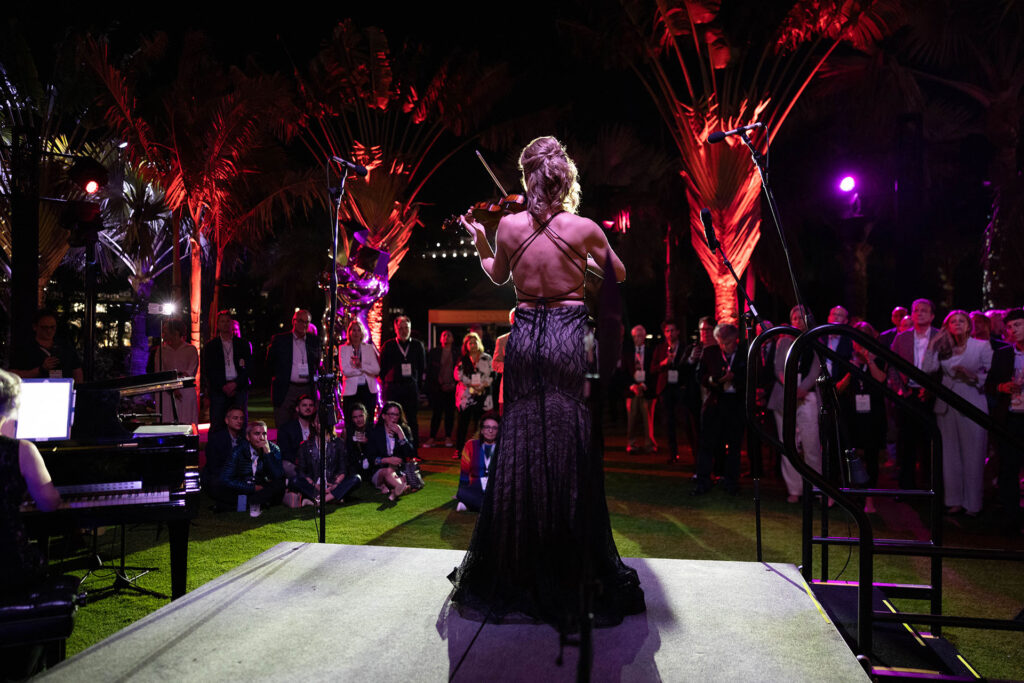
On Day Two, the forum addressed the subject of aging in a panel where moderator Jane Metcalfe of NEO.LIFE asked, “Is aging optional?” It turns out that the answer to that question, to a large extent, is yes. Most of us can now expect to live to age 95, but much depends on the lifestyles we choose. Since aging really begins when we turn 30, aging is something to manage throughout one’s adult life. “Health is the new wealth,” quipped Peter Diamandis of XPRIZE Foundation. If whales can live 200 years, why not us? We are on the precipice of extraordinary developments in longevity, said Diamandis, the cusp of a “longevity escape velocity.” But let’s be realistic: Most Americans say they don’t want to live 115 years, and lifespan does not automatically equate to “healthspan.” It’s the quality of the life lived that matters.
So, you might ask, in what way are the high-level discussions that take place each year at the Lake Nona Impact Forum relevant to … Lake Nona? The Impact Forum is a fast-moving, intense event packed with a rich trove of information about the latest challenges and promises in the healthcare industry. A brief article such as this can only scratch at the surface of the information shared during the forum. (Maybe a second article on the discussions at this year’s forum would help … stay tuned!) In chats between sessions with attendees, it became clear to me that Lake Nona is viewed as a model community for health and wellness at the national level. But participants seemed surprised to meet a genuine Lake Nona resident, from which I concluded that only a handful of locals attend the forum. We should nevertheless be immensely proud that such high-level thought leaders in health and wellness have chosen our town for this annual confab. Meanwhile, let’s hope that the Impact Forum and the Lake Nona community inch closer to one another in the coming years.
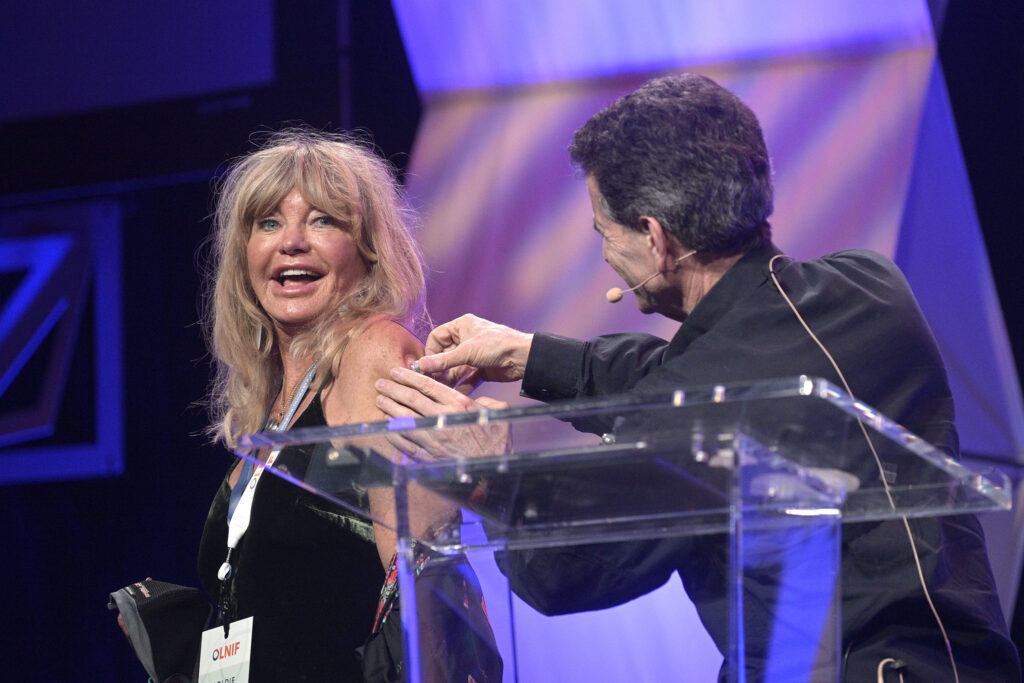
Dept. of Details: All those attending the forum, including this reporter, were required to take a rapid COVID test. But no honor system here: Those taking the test were required to pull out their smartphone camera to validate the test results with a call center agent working remotely. A few speakers apparently tested positive for COVID, which produced a last-minute scramble to recalibrate the forum agenda. … Tavistock Vice President Gloria Caulfield, the main organizer of the forum, received abundant plaudits from speakers and attendees for her stellar performance – and that of her team – in pulling together this year’s conference. … Midway through the agenda, soon-to-be Laureate Park resident Deepak Chopra led the attendees in an impromptu meditation session. … Three words heard frequently at this year’s forum were trust (or lack thereof), partnerships and inequities. … In one of the forum’s more intriguing moments, inveterate inventor Dean Kamen spoke of the promise of microneedle patches for the delivery of vaccines. The patches, which are painless, obviate the need for injections by trained healthcare professionals. To demonstrate the patches’ ease of use, Kamen called volunteer Goldie Hawn to the stage and stuck a microneedle patch on her arm, thus producing the forum’s finest photo-op. Hawn’s patch contained only water, however, not a vaccine.
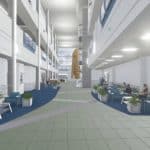
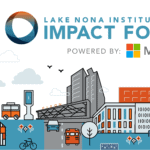
Excellent article. It’s time all of us pulled together and focused on prevention. Peer Mentoring is also an essential element in improving well being. For example, there is an inherent fear about conditions such as chronic kidney disease, diabetes and so on. It’s important to learn how to handle these conditions from folks who are handling those conditions effectively.
Peer Mentoring is an important step.